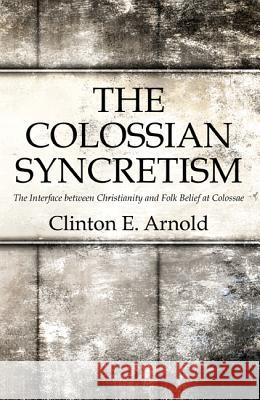The Colossian Syncretism » książka
The Colossian Syncretism
ISBN-13: 9781498217576 / Angielski / Miękka / 2014 / 394 str.
Our modern era is not unique in its fascination with angels and the spirit world. Paul's young converts in Colossae also had a keen interest in the subject, but some of them allowed this interest to distort their newfound Christian faith. Defining the exact nature of the Colossian heresy, however, has been a perennial challenge to interpreters. The Colossian Syncretism offers groundbreaking evidence on the true nature of the problem that the Apostle Paul opposed so vehemently. Drawing upon little-known angel inscriptions, magical texts, and archeological evidence from Asia Minor, the author argues that the Colossians tried to combine Paul's teachings about Christ with local pagan and Jewish folk beliefs. The result was a syncretism that kept them captive to the fear of evil spirits, dependent on the power of magic and amulets, and blind to the liberating power of the indwelling Christ, the supreme Creator and Lord of all spiritual principalities and powers. In addition to unearthing the historical background of Paul's letter to the Colossians, The Colossian Syncretism presents Paul's strategy for addressing the religious syncretism he faced there. It thus provides a working model for Christian missionaries and evangelists discipling converts from today's religiously pluralistic societies. Clinton E. Arnold is Professor and Chairman of the Department of New Testament at Talbot School of Theology, Biola University. He holds a PhD in New Testament exegesis from the University of Aberdeen, Scotland. He is regarded as evangelicalism's leading authority on spiritual warfare. He has also written Crucial Questions about Spiritual Warfare and Powers of Darkness: Principalities and Powers in Paul's Letters.











